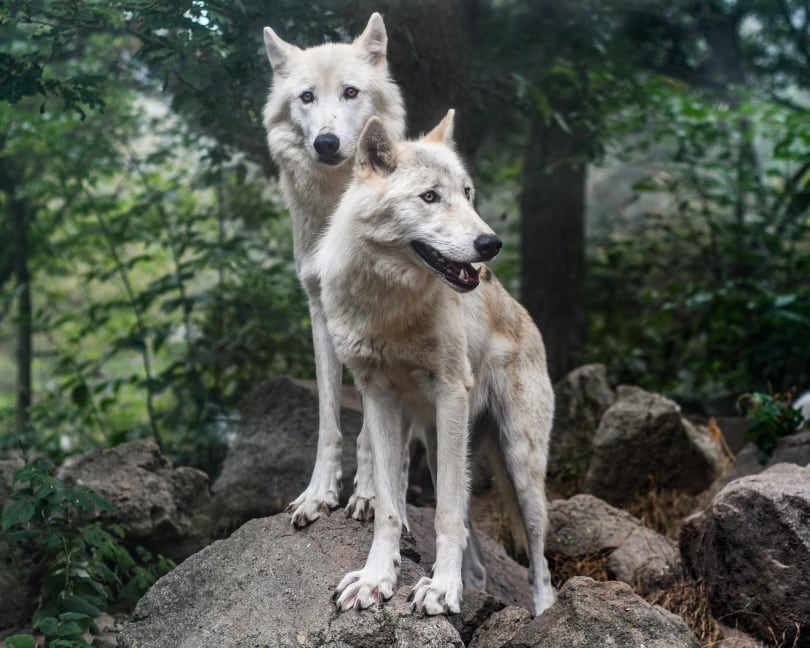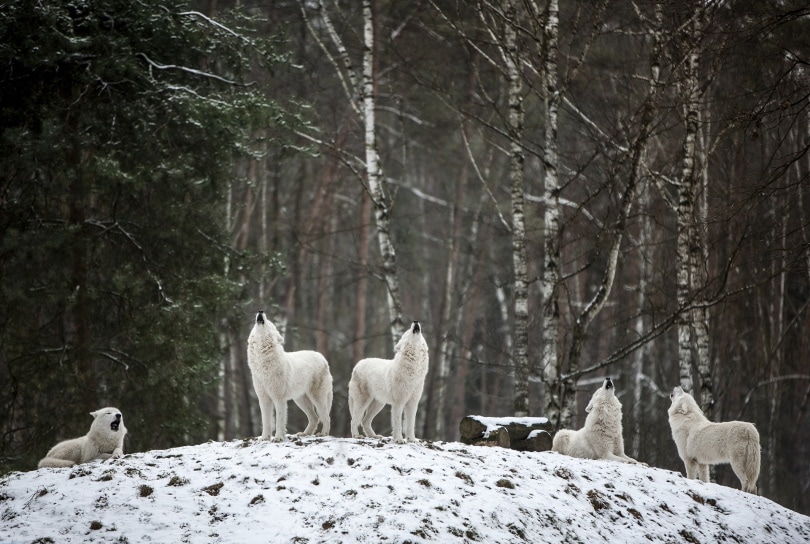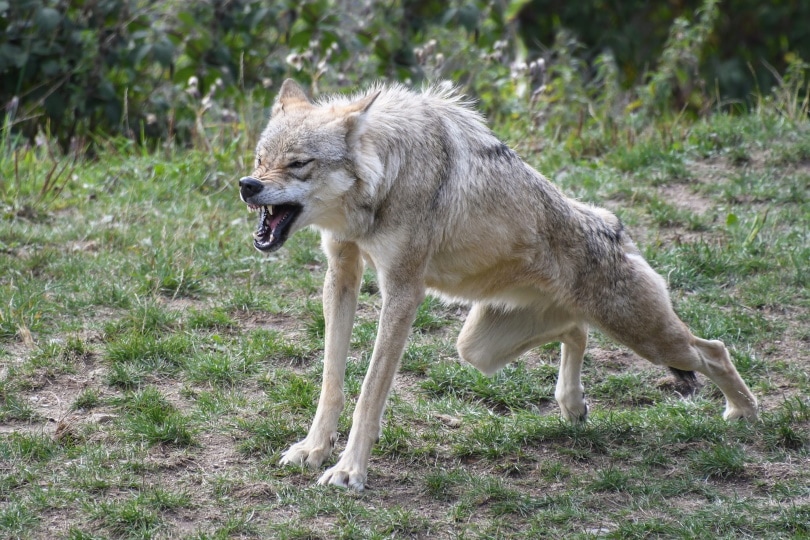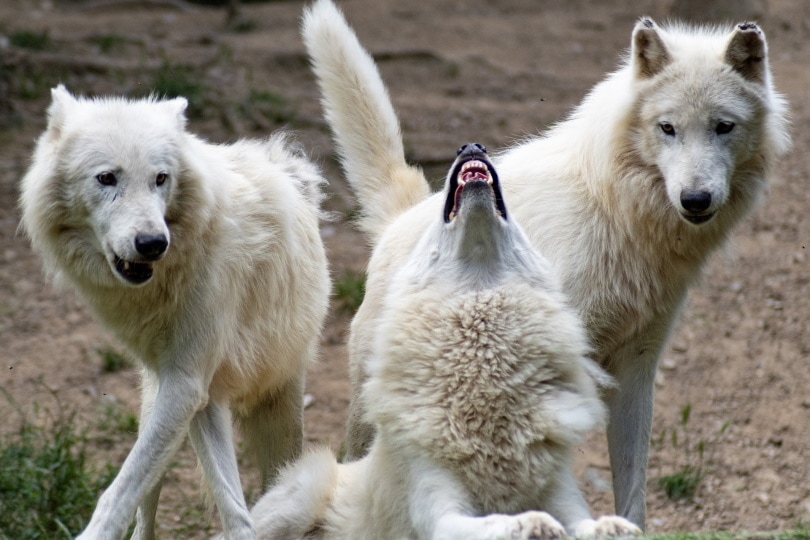Do Wolves Bark Like Dogs? Sounds & Communication Explained
Updated on

Dogs may have descended from wolves, but that doesn’t mean they’re the same animal. So do wolves bark like dogs? In short, no, wolves do not bark same as their dog counterparts. Here’s what you should know about wolves and the sounds they make!
What’s the Difference Between a Wolf and a Dog Bark?
Wolves do not bark as dogs do. Their barks are lower-pitched, so they don’t really sound like dogs when they communicate. Also, their barks are typically communicated through a series of howls that sound similar to barking.
Dog communications are typically more pronounced and higher pitched. Each bark is short and distinct. Instead of barking as pet dogs might do, wolves make a huffing sound that makes it seem like they are getting ready to let out a full-on bark. They just never seem to get there.
A wolf’s howl is similar to a dog’s, though. Sometimes, when a pack of dogs is howling at night, they can be mistaken for a pack of wolves instead. A howling wolf can also be mistaken for a dog. Therefore, it is important to know whether you’re dealing with a dog or a wolf if you see something howling at you from a distance. If you are unsure, it’s best to slowly walk in the other direction.

How Do Wolves Bark?
Wolves don’t really bark like dogs do. Instead, they huff as if beginning to bark, but they stop short of actually barking. They also howl continuously in short spurts that kind of sound like barking. They use the same vocal skills that dogs do to communicate, but their style of communication is meant to accommodate their needs in the wild as opposed to interacting with people. Wolves use their body language as the main source of communication with other wolves. They also make other sounds to help communicate what they are thinking, what they need, and where they are.
What Other Sounds Do Wolves Make?
There are four basic categories of vocal communication that wolves tend to use. The first two are barking and howling. The other two categories are growling and whimpering. Many times, a wolf will use a combination of communication techniques to get their point across. For instance, a wolf might let out a short bark followed by a growl and then a long howl. Any combination of communication techniques might be used at any given time.

Why Do Wolves Vocally Communicate?
Wolves communicate with howls, short barks, growls, and whimpers for a variety of different reasons. A mother wolf will bark at her young to warn them of danger or to get them to behave. Wolves may also bark as a warning when other packs are getting too close. Wolves will howl to let others in their pack know their location. They also howl as a defense to make their packs seem larger and more intimidating. This helps protect kill sites and dens with young pups that cannot run away from danger. Wolves growl to warn other wolves, animals, and people away when they are feeling threatened. They will even growl at each other to settle disputes and establish the pack order.
It can be tough for a human to determine why a wolf is communicating if one approaches during a hike or camping trip. Unless you are well-versed in the behaviors and intentions of wolves, it is important to never interact with a wolf in any way. Don’t make eye contact or try to scare it off, as these actions can be perceived as offensive by the wolf.

Final Thoughts
Wolves might be related to dogs and they often look like dogs, but they are not dogs and should never be treated as such. When a wolf makes any noise, it is usually a warning of some kind, and we humans should always heed those warnings.
Featured Image Credit: Christel SAGNIEZ, Pixabay











